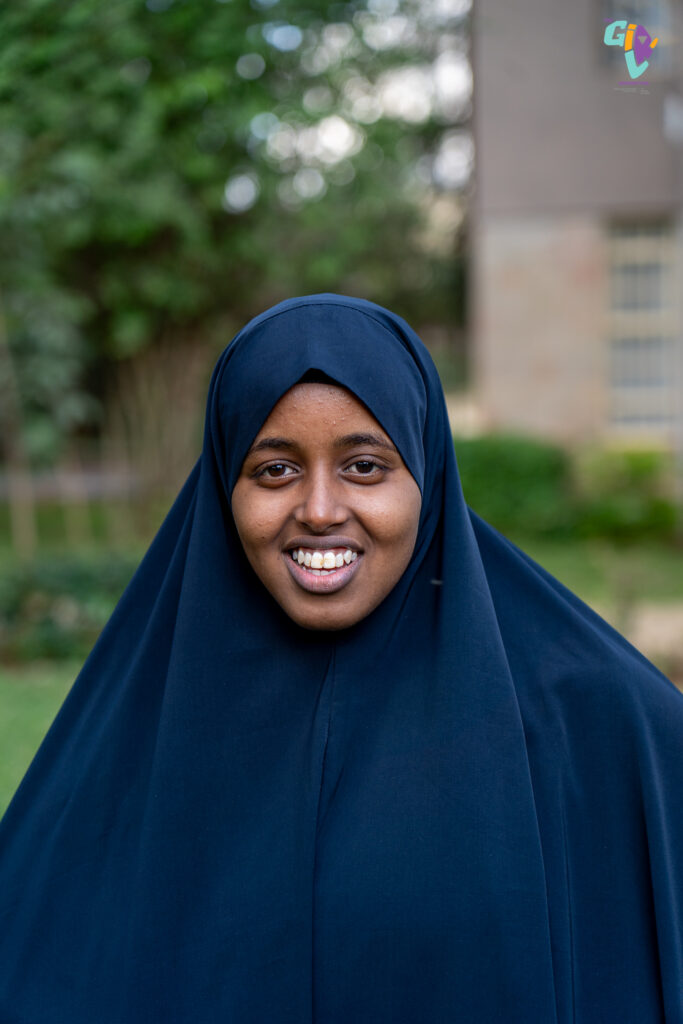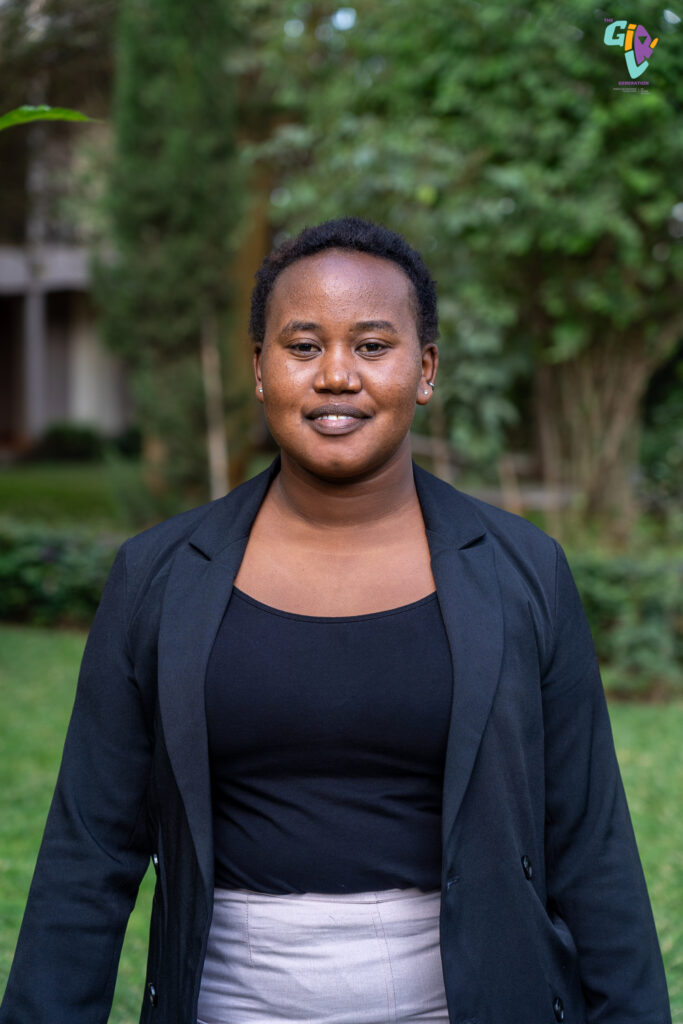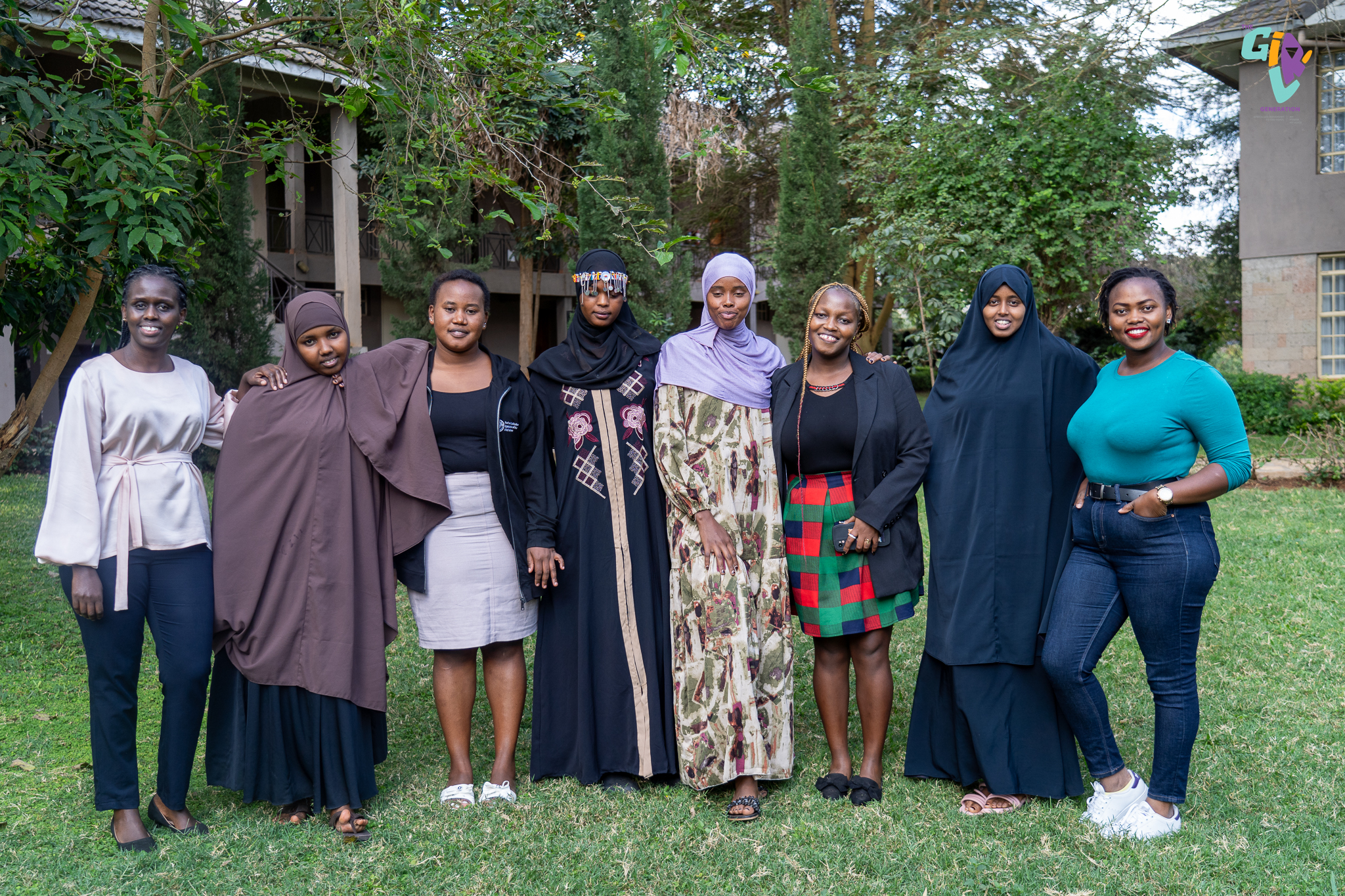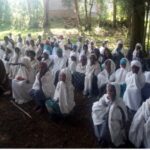The Girl Generation, through its support for the Africa-led movement to end FGM/C (TGG-ALM), actively amplifies the voices of those most impacted by FGM/C. We recognize that FGM/C primarily affects girls and young women the most, and we aim to centralize their voices.
The Girl Council encourages girls and young women to take leadership in the grassroots movement to end FGM/C and challenge the gender inequalities that drive it. Established as a safe space at the community level, the Girl Council amplifies the voices of FGM/C survivors and provides platforms for them to speak out. It equips members with toolkits, training, and opportunities to develop their leadership skills. These young leaders come from our four focus countries: Kenya, Ethiopia, Senegal, and Somaliland.
Naima Ali Adan

“I was too young, probably less than five years old, but I remember the pain. I was tied up,” shares Naima Ali Adan, a survivor and a passionate member of the Girl Council. Coming from Kenya, Naima was strongly convicted of joining the movement after witnessing the advocacy efforts of Zamzam, a program coordinator at ActionAid Kenya, a consortium partner of The Girl Generation.
“I recall Zamzam conducting community dialogue on FGM/C in my locality. Funny enough, they were listening to her.” Naima recalls. “I was inspired and wanted to be that girl the community looks up to.” Amongst the Somali community, women rarely speak publicly. When Naima started speaking out, she found schools to be a haven as she was easily welcomed, which enabled her to advocate for girls’ rights fostering a growing network of young activists.
Despite her commitment to lead the community dialogues, Naima faced backlash. Community members reported her to the mother, accusing her of setting ‘a bad example’ to the younger girls.
“It becomes so hard to speak against FGM/C. The community ganged up and told my mum that I was following a bad path,” she shares. Nevertheless, Naima’s mother has always stood firm by her daughter despite pressure from the community “She always encourages me, and her support keeps me going, ”says Naima.
Naima’s journey is not only being driven by passion but is also personal. Having lost so many of her cousins to early and forced marriages, a common denominator of FGM/C, that once a girl undergoes the cut, she is considered a woman ready for marriage.
“I have lost so many of my cousins to early and forced marriages. In Garissa, before the Girl Council, lots of girls were afraid to speak. Now, we have 8 members, and the number keeps growing because we inspire each other,” Naima adds. By being part of The Girl Council, Naima has been able to find her voice and speak out against vices in her community. Today, Garissa boasts of eight girl council members, with the numbers expected to rise in the coming days as the girls have found a haven in each other.
Girls and young women who understand their rights and advocate against FGM/C play a crucial role in engaging their families, schools, and communities in driving change.
Irene Naserian

Irene Naserian, from Narok County, knows firsthand the devastating effects of FGM/C. Coming from a polygamous family with 17 siblings, she witnessed 8 of her sisters undergo FGM/C. When she came of age, she too underwent the FGM/C just right before she joined high school. Being the youngest daughter in her family, she counts herself lucky for escaping early marriage and pursuing her education further.
Conversely, a change of heart swept over the masaai community when The Girl Generation through our partner Amref began their community interventions in Kikonyoki ward, Narok County. Naserian’s mother used to attend these community dialogues from time to time, once in a while tagging along with her father. They became informed that FGM/C in itself is a human rights violation and not a rite of passage.“My parents became aware that what happened to me and my sisters was a violation,” Irene shares.
They regretted putting them through the practice and encouraged Irene to focus on her future. “They told me not to dwell on the past but to think about how I could help my community,” she recalls. With my parents’ support, I decided to tag along with my mother to the community dialogues. Over time, because of my strong advocacy and debate skills, I joined the end FGM/C movement and educated the youths on the effects of FGM/C.
Eventually, Irene joined The Girl Council where she now serves as Chairperson, leading advocacy efforts across Kikonyoki and Suswa wards. Her role allows her to directly engage with girls, creating a space where they can openly discuss matters affecting them.
Irene recalls moments when community members dismissed her efforts, saying, “You too are a survivor, what are you telling us?” Despite this, she remained steadfast hoping that her community would see the light and the girls would be able to voice their opinion.
Notwithstanding the community skepticism, Irene finds it important to collaborate with men considering the patriarchal nature of her community. She also advocates for the inclusion of persons living with disabilities to expand the movement’s reach.“We do not intend to leave anyone behind, even the differently abled are part of our programming. Being inclusive means more success,” she notes.
Outlook
Dorothy Mulei, the Gender Lead at The Girl Generation, reflects on the initiative’s far-reaching impact “The Girl Council not only aims at strengthening the grassroots movement by ensuring vulnerable voices are heard but also providing a platform for the girls and equiping them with the right skillset thereby protecting future generations.”
TGG-ALM believes that girls and young women who know their rights can break the cycle and are less likely to subject future generations to FGM/C. Encouraging and supporting girls to join the anti-FGM movement ensures that they are not just passive beneficiaries of change but active leaders and change-makers in their communities.



